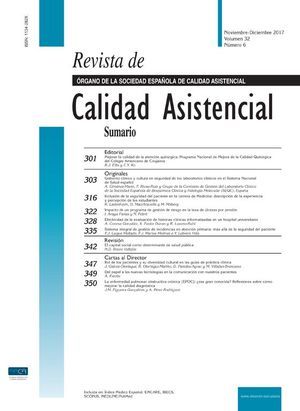The coronavirus disease 2019 (COVID-19) pandemic has caused a high demand for health services, especially nursing. This workload can lead to emotional distress affecting their daily lives on a personal and professional basis.
ObjectiveTo examine the prevalence of depression, anxiety, and stress in nurses and to analyze the factors associated with their presence during the COVID-19 pandemic.
MethodsAn observational cross-sectional descriptive study was carried out in a second-level hospital in Mexico between September and October 2020. Within a population of 150 nurses invited to the study, 116 participated by answering a questionnaire regarding emotional aspects during their time caring for COVID-19 patients, as well as using the depression, anxiety, and stress scale (DASS-21).
ResultsAmong de 116 participants, 77.6% were females, and 22.4% were males. The 91.4% reported fear of spreading the disease to their families, and 59.5% reported that the death of their patients infected with COVID-19 affected them deeply. The factors associated with moderate to extremely severe levels of depression were the attitude of indifference from the community to their work during the pandemic (OR:2.66) and the increase consumption of addictive substances (OR:9.80). In the stress subscale, the variables that conferred a significant association was working inside the COVID-19 area (OR:17.05), being severely affected by the death of patients infected (OR:4.23), and fear of entering the red zone (OR:19.47). The need for psychological care was associated with moderate to severe depression and anxiety (OR:7.38, OR:9.50, respectively). For the anxiety subscale, no association with the studied variables was found.
ConclusionsThe study indicates a high prevalence of emotional distress among nurses, and that there were working, psychological and social factors associated with symptoms of depression and stress. Future research should focus on prevention measures and strategies to reduce psychological impact, as this could affect the quality of care provided to their patients.
La pandemia de la enfermedad por coronavirus 2019 (COVID-19) ha provocado una alta demanda de servicios de salud, especialmente de enfermería. Este aumento en la carga de trabajo puede conducir a una angustia emocional que afecta su vida diaria, tanto a nivel personal como profesional.
ObjetivoExaminar la prevalencia de depresión, ansiedad y estrés en enfermeras y analizar los factores asociados a su presencia durante la pandemia por la enfermedad de COVID-19.
MétodosSe realizó un estudio observacional descriptivo de corte transversal en un hospital de segundo nivel en México, entre septiembre y octubre de 2020. De una población de 150 enfermeros(as), 116 participaron respondiendo un cuestionario sobre aspectos emocionales y la escala de depresión, ansiedad y estrés (DASS-21).
ResultadosDe los 116 participantes, el 77,6% eran mujeres y el 22,4% eran hombres. El 91,4% manifestó temor de contagiar la enfermedad a sus familiares y el 59,5% se sintió profundamente afectado por el fallecimiento de sus pacientes con COVID-19. Los factores asociados a niveles moderados a extremadamente severos de depresión fueron la actitud indiferente por parte de la comunidad hacia su trabajo durante la pandemia (OR: 2,66) y el aumento del consumo de sustancias adictivas (OR: 9,80). En la subescala de estrés, las variables que confirieron asociación significativa fue trabajar en el área COVID-19 (OR:17,05), verse gravemente afectado por la muerte de pacientes con COVID-19 (OR: 4,23), miedo a entrar en zona roja (OR: 19,47). La necesidad de atención psicológica se asoció con depresión y ansiedad moderadas a severa (OR: 7,38, OR: 9,50, respectivamente). Para la subescala de ansiedad no se encontró asociación con las variables estudiadas.
ConclusionesEl estudio indica una alta prevalencia de angustia emocional entre el personal de enfermería, y se identificaron factores laborales, psicológicos y sociales asociados a los síntomas de depresión y estrés. Las investigaciones futuras deben centrarse en medidas y estrategias de prevención para reducir el impacto psicológico, ya que esto podría afectar la calidad de la atención brindada a los pacientes.







